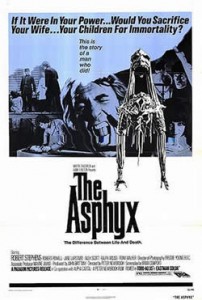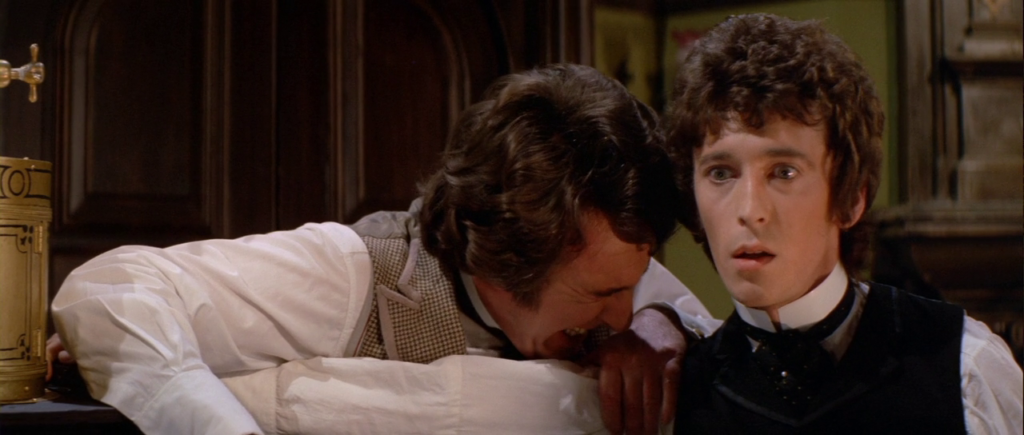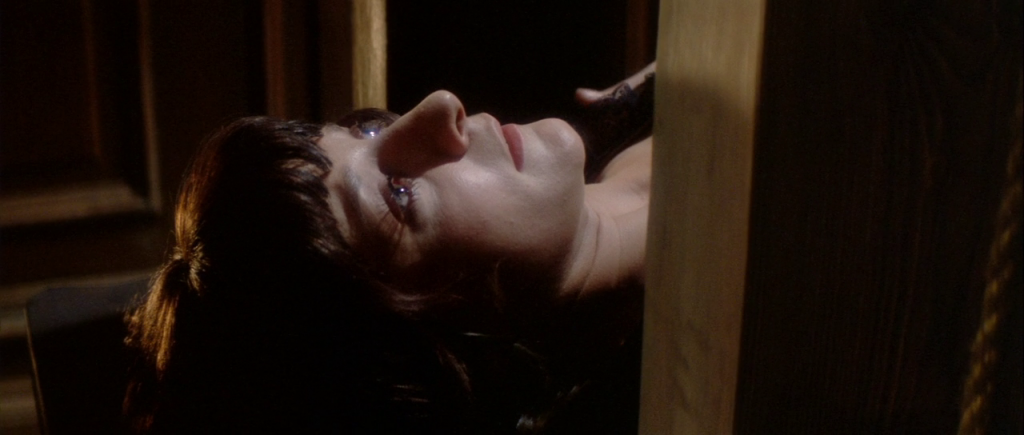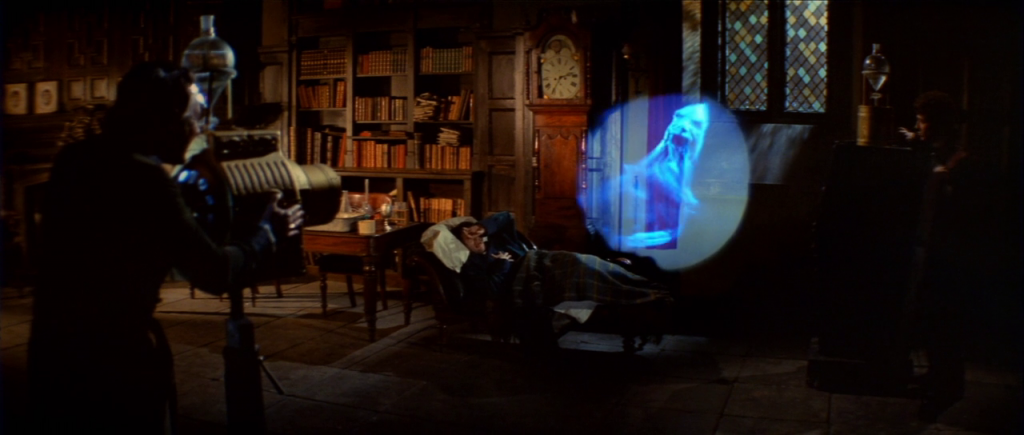|

Synopsis:
After the tragic loss of his son (Ralph Arliss) and fiancee (Fiona Walker), a British squire (Robert Stephens) becomes obsessed with the notion that a mythological spirit known as an asphyx can be viewed and captured at the moment someone is about to die. With the help of his daughter (Jane Lapotaire) and adopted son (Robert Powell), he conducts increasingly risky experiments in the name of achieving immortality for himself and the remains of his family.
|
|
Genres, Themes, Actors, and Directors:
- Flashback Films
- Historical Drama
- Horror
- Life After Death
- Mad Doctors and Scientists
- Science Fiction
Review:
This Victorian-era sci-fi/horror flick is based on an unusual and provocative premise, but suffers from a few too many gaps in logic. The titular entity itself — an “asphyx” (spirit) that arrives just as a person is dying and can somehow be trapped, thus leading to immortality — doesn’t really make much sense, and neither do the workings of the contraption used to view and secure the asphyx (which inexplicably involves blue crystals and a water supply). Even if we accept this odd process and phenomenon as part of the movie’s unique logic, the behavior of the primary character doesn’t convince, either: Stephens is clearly suffering from post-traumatic stress after losing his son and fiancee, fixating on the mystery of the asphyx to gain a sense of control over the whims of mortality — but his actions are extreme, and hint at deeper psychological issues that aren’t sufficiently explored. Meanwhile, Powell’s overly stoic performance (think Buster Keaton) prevents us from empathizing with him; while it’s clear he’s under the sway of his beloved foster father’s influence, this can’t quite explain the extreme risks he takes with his fiancee.

Speaking of risks, the presence of a guillotine at one point is explained away as allowing the (immensely likable) would-be victim to “feel fear” (!) — but couldn’t another, less vicious method have been secured for her near-death experience? In the film’s favor are lovely sets, vibrant Todd-AO cinematography, and some nifty special effects — but overall, this one is a disappointment.
Redeeming Qualities and Moments:
- Freddie Young’s cinematography

- Fine period sets and special effects

Must See?
No, though it’s worth a look as an unusual horror outing.
Links:
|




One thought on “Asphyx, The (1972)”
First and probably last viewing.
This film has one thing going for it: its “unusual and provocative premise”. From there, the going for it is just about gone and it’s more or less all downhill.
As the premise actually plays out, this is among the silliest movies I have ever seen. What’s ultimately worse is that the actors do their best in carrying it all off (esp. in the more supremely ludicrous dramatic crescendos) with the utmost conviction, thus heightening the silliness.
The writing is bad. But, as the film progresses, you continue to realize just how far off the rails the film’s premise has actually gone…and all hope is lost. (The guillotine sequence, in particular, is so awful it’s almost inadvertently funny.)
I will concede there’s a brief reprieve: the penultimate scene does hold a moment of cleverness. But, alas…what follows to conclude the film is simply a big WTF?
Basically…skip it. I wouldn’t be surprised to learn that the film bizarrely and somewhat inexplicably has a cult fan base somewhere. But it’s actually more than silly. It’s dumb.